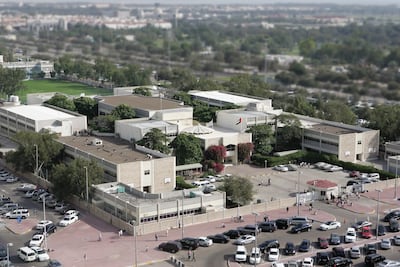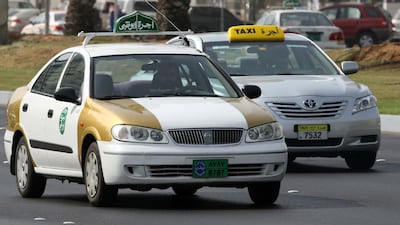In Tobias Becker’s new book Yesterday, which is an examination of the concept, history and idea of nostalgia, the author notes that the word was originally defined as “homesickness” but that later mutated into meaning something akin to a “sentimental yearning for some period of the past”.
It is no surprise at all that Becker’s book begins by quoting the lyrics of The Beatles’ song Yesterday as a gateway into nostalgia, with its yearning for the simplicity of the past and its affirmation of the better times of before.
Given the fast pace of change in this country, there is often a brisk secondary market in nostalgia, or a tendency by plenty of us, me included, to look back at the past to make sense of the future the UAE is constantly rushing towards – and to sometimes reach the conclusion that the past was somehow better, rather than being, as novelist LP Hartley put it, “a foreign country”.
We all have a selective memory, carefully curating and editing in our minds the experiences of the past to cut things out here or to amplify bits there and you don’t have to look too intently to find those reminders of days gone by in this country.
In the neighbourhood where I live, a walk past the now-empty Mushrif campus of the International School of Choueifat, for instance, might induce a pang of nostalgia among former students of the historic campus, first established in Abu Dhabi in the 1970s.
Where once it was busy grounds full of young people, today the students have been shifted to another crosstown campus, while heavy machinery crawls over the former site and removes the husks of the old buildings in preparation for redevelopment and improvement.


Or when pictures of modern gold-and-white liveried taxis started appearing on social media recently, many long-term residents’ reaction would, I suspect, have been to fondly remember the original versions, which were finally withdrawn from service at the end of 2012 – to be replaced by the now familiar silver Abu Dhabi cabs.
The memory plays tricks on you, of course, and as The National reported when they were withdrawn from service, gold-and-white cabs weren’t universally loved, even if the pictures of modern taxis decked out in the livery of old attracted plenty of thumbs-ups, likes and shares on the digital platforms where those images were published.
“For many their passing will elicit no lamentations … but for some, the original taxis reflect a more colourful, older way of life,” we reported a decade ago, nodding gently to the fact that the cabs were often kitted out inside to reflect the idiosyncrasies of the driver’s personal tastes and that the meter didn’t automatically switch on when you sat in their seats.
The reality was that “old golds” were sometimes cramped, poorly maintained cars, which stood in stark contrast to the GPS-enabled, modern, spacious fleet of silver cabs we’re familiar with now. It’s a classic area where regulation has helped achieve progress rather than hinder it. That, perhaps, is also the genius of retro liveries on modern cars, thereby retaining the look and feel of the old, while giving it a thoroughly modern twist.
The pace of change in terms of rapid provision of services can be seen through the lens of nostalgia, too.
Last month, the government set out its 10 economic principles for the next decade, which are broadly focused on growth, stability and opportunity.

Sheikh Mohammed bin Rashid, Vice President and Ruler of Dubai, described the principles as working towards putting the UAE at the “forefront of the global economies with a strong digital infrastructure, secure systems, flexible legislative framework, and a renewable futuristic mindset”.
It wasn’t very many years ago that the renewal or conversion of a driver’s licence or the issuing of a new permit would involve a journey in one of those old gold taxis to a government building and several hours of waiting, processing and validating before the relevant document was approved and then several more days before the physical permit arrived.
Now, those transactions can be performed in minutes on a government services app that serves as a form of one-stop shop for consumers. In this case, few would wish for a return to the old days of lengthy bureaucracy.
Cutting red tape doesn’t confer the country with a competitive advantage by itself, of course, because those processes are replicable and are not unique to this trading environment, but it is indicative of the direction the nation is moving in.
The economy grew sharply in the first half of the year – by 3.7 per cent – something which officials say is down to resilience, diversification, openness and co-operation. Every annual Arab Youth Survey that is published is a reminder that the region’s young people recognise the advantages of life here, including opportunity, transformation and greater, growing ease of setting up shop or home and doing business. These, perhaps, are the undervalued statistics and firm monuments of progress.
It is easy to be wistful about the past, particularly when the present can be anxiety-ridden and the future can seem uncertain. There is no harm in romanticising the past, but we should also recognise the advantages of now and the promise of tomorrow.


